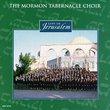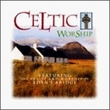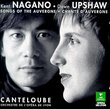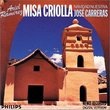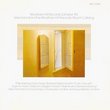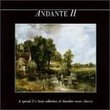| All Artists: Judith Blegen, Alan Byers, Nico Castel, Sherrill Milnes, Ruggero Raimondi, Sir Georg Solti Title: Puccini: La Bohème Members Wishing: 0 Total Copies: 0 Label: RCA Release Date: 7/28/1998 Genre: Classical Style: Opera & Classical Vocal Number of Discs: 2 SwapaCD Credits: 2 UPC: 743213949628 |
Search - Judith Blegen, Alan Byers, Nico Castel :: Puccini: La Bohème
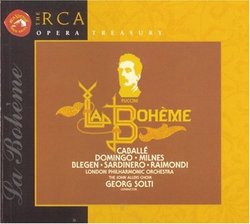 | Judith Blegen, Alan Byers, Nico Castel Puccini: La Bohème Genre: Classical
|
Larger Image |
CD DetailsSimilarly Requested CDs
|
CD ReviewsCaballe and Blegen shine in theatrical "La Boheme" daniel0302 | New York, NY United States | 09/07/2000 (4 out of 5 stars) "As far as putting "La Boheme" across as a cohesive piece of theater, this recording is superior to Karajan's far more celebrated and commercially successful Pavarotti/Freni pairing for Decca/London. This "Boheme" emerges as an ensemble effort despite the star power of its line up, and is also one of Solti's most successful Italian opera recordings. The long Mimi/Rodolfo scene that closes Act 1, with its two arias and duet, is seamless, beautifully sung, and lovingly interpreted. The affectionately calm yet sexy ending of "O suave fanciulla" is here sung as written with Domingo taking the low E instead of interjecting a high C, and is recorded from an appropriate distance, as the lovers steal off into the cold Christmas night. These are two young people sweetly holding on to each other for warmth, basking in the gentle glow of new love. Contrast this with the Karajan recording, with Freni and Pavarotti bellowing out fabulous, but innapropriate, high Cs in a star turn more about two superstars than about Puccini's young, tender, doomed lovers.Caballe is simply ravishing, and sounds perfectly cast in a role that she was not known for onstage. She avoids the preciousness and aloof emotion that creep into some of her other recordings, and is consistently fragile and touching. She inhabits the role from start to finish, and is genuinely heartbreaking in Acts 3 and 4. The young Domingo is lyrical, virile, and every bit the impetuous young poet. Pavarotti and Carreras are vocally more suited to the part in both weight and color, but Domingo is still quite good. Milnes and Blegen have lots of chemistry, and the second couple emerges, as they should, as the stars of Act 2. Milnes sometimes does indulge in the covered, swallowed top notes that mar many of his recordings. Blegen has a lot more to offer than many recorded Musettas, and she is never afraid of not being pretty. Musetta's Waltz is not the "audition piece" it is in the hands of many, but the campy mating call that Puccini wrote. Raimondi contributes a wonderfully introspective Coat Aria in Act 4. Often criticized for his heavy hand, Solti maintains a light touch with the contrasting extremes of comic, sentimental, and tragic. He finds the individual identity of each of the four acts, and still maintains a cohesive whole. What this recording sometimes lacks - and the oversung Karajan version has in spades - is the sense of being deliriously overwhelmed by its own outpouring of glorious music making. Still, this is a fine version of the opera, and dramatically more satisfying than most. Given its mid-price reissue, a very good choice, and an absolute must for Caballe fans." Simply divine!! jonnyethan | USA | 12/28/2003 (5 out of 5 stars) "I agree Karajan's Boheme is wimpy. Who wants a wimpy set? This is the ultimate La Boheme. Domingo is at his youthful peak!! Domingo may not be the high note tenor par excellence, but he is the ultimate tenor par excellence who can produce high notes more powerful than the King of High Cs. Caballe produces ravishing tone and incredible floated pianissimi as Mimi. Milnes is nothing short of amazing. Forget the Karajan set, this is the ultimate La Boheme!! Yes, red-blooded Bohemians flesh and blood. Not a bunch of wimpy guys in Karajan's set (in Karajan's set, you almost feel like they will shriek when they see a rat)." Who can resist such beauty, and why should you? Craig Matteson | Ann Arbor, MI | 09/12/2005 (5 out of 5 stars) "Because of the popularity and prominence of "La Bohème" today you might be surprised that it was not received particularly well when it first premiered. However, we love it for many great reasons. The music is beautifully done, and Puccini's art keeps the drama full of motion and involves us emotionally. We love a sad love story and few are more passionate or more sad than the love of Rodolfo the penniless writer and Mimì consumptive seamstress.
It is not important for the plot of an opera to surprise us in dramatic twists. What is important is that it surprises us with the way the music draws us in. There are moments of surpassing beauty in this opera. The aria when Rodolfo sings to Mimì that her tiny had is so cold is just famous as is her reply. Their simultaneous exclamations of love a bit later is stunning in its beauty. It is common for people to weep at this point in the opera. I find it hard to keep my eyes dry when Rodolfo exclaims "In you I behold the dream I would always dream" and she sings "Love alone commands me". It isn't the words, it is the music that transports these words to the heavens. The crowd scenes are delightful and Rodolfo is surrounded by colorful friends not the least of whom is Musetta. She is the most dynamic character in the opera and does the most for Mimì at the last and let's the dying girl believe the credit belongs to Rodolfo, who finds himself prostrate over his lost love crying her name in agony. This opera is less than two hours long and requires fewer resources to perform than many great operas, so that also may contribute to its frequent appearances. This recording is terrific, is priced affordably, and has wonderful notes and libretto in Italian and English. Strongly recommended. If you want to learn more about opera, this is an easy and enjoyable place to start." |

 Track Listings (20) - Disc #1
Track Listings (20) - Disc #1